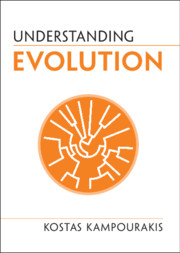Book contents
- Understanding Evolution
- Series page
- Understanding Evolution
- Copyright page
- Reviews
- Dedication
- Contents
- Foreword
- Preface: There is More to Resistance to Evolution than Religion
- Acknowledgments
- 1 The Public Acceptance of Evolution
- 2 Religious Resistance to Accepting Evolution
- 3 Conceptual Obstacles to Understanding Evolution
- 4 Charles Darwin’s Conceptual Change
- 5 Common Ancestry
- 6 Evolutionary Processes
- 7 Evolutionary Theory and the Nature of Science
- Concluding Remarks
- Summary of Common Misunderstandings
- References
- Figure Credits
- Index
3 - Conceptual Obstacles to Understanding Evolution
Published online by Cambridge University Press: 29 September 2020
- Understanding Evolution
- Series page
- Understanding Evolution
- Copyright page
- Reviews
- Dedication
- Contents
- Foreword
- Preface: There is More to Resistance to Evolution than Religion
- Acknowledgments
- 1 The Public Acceptance of Evolution
- 2 Religious Resistance to Accepting Evolution
- 3 Conceptual Obstacles to Understanding Evolution
- 4 Charles Darwin’s Conceptual Change
- 5 Common Ancestry
- 6 Evolutionary Processes
- 7 Evolutionary Theory and the Nature of Science
- Concluding Remarks
- Summary of Common Misunderstandings
- References
- Figure Credits
- Index
Summary
Our knowledge and understanding take the form of concepts that are mental representations of the world. Scientific concepts have important representational and heuristic roles in the acquisition and justification of scientific knowledge because they both represent natural entities, properties, and processes, and also make their investigation possible. Concepts should be distinguished from conceptions, the latter being the different meanings of, or meanings associated with, particular concepts. From our early childhood we experientially formulate conceptions of the world that are described as preconceptions. As we grow up, we often assimilate knowledge that further modifies our preconceptions, occasionally turning them into more complex but incorrect conceptions, which are described as misconceptions. Conceptual change is the change of our preconceptions with development and learning; however, that people may restructure or reorganize their conceptions when they acquire new knowledge does not guarantee an accurate understanding of concepts. For conceptual change to occur, individuals must be guided to realize that their prior conceptions are wrong or explanatorily insufficient.
Information
- Type
- Chapter
- Information
- Understanding Evolution , pp. 42 - 69Publisher: Cambridge University PressPrint publication year: 2020
